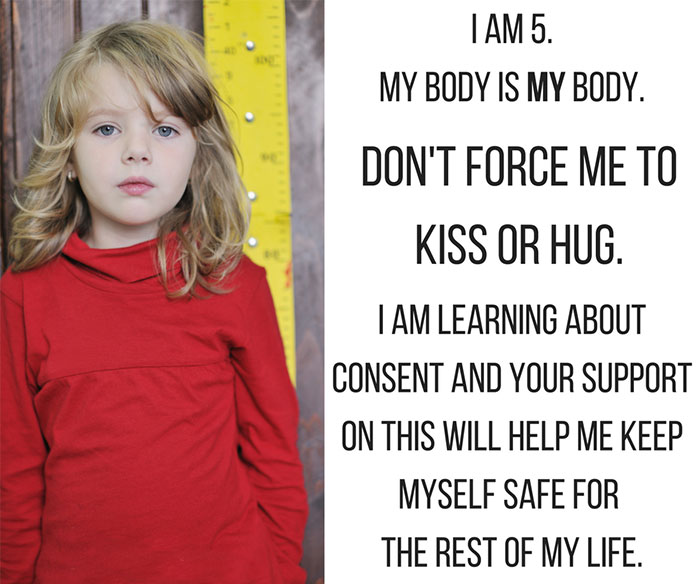 Children will always “push the limits” because they need our help coming to terms with life’s limitations. Children need to really feel our support when they’re dealing with feelings of frustration, sadness, disappointment and anger when not allowed to do want they want to do or have what they want to have. They need our genuine heartfelt empathy when they struggle with not being allowed to go on the screen or eat that sugary food or have that new toy.
Children will always “push the limits” because they need our help coming to terms with life’s limitations. Children need to really feel our support when they’re dealing with feelings of frustration, sadness, disappointment and anger when not allowed to do want they want to do or have what they want to have. They need our genuine heartfelt empathy when they struggle with not being allowed to go on the screen or eat that sugary food or have that new toy.
Our children feel more drawn to follow our lead when we lead with clarity, confidence and kindness.
When we say “no” children have a way of knowing when we mean what we say. And they know when we don’t really mean what we say. Our children generally find it easier to understand, accept and respond to requests and boundaries that are expressed with words that are congruent with the feelings and body language we’re expressing. They can become very confused and even insecure when we give mixed messages; our words say one thing, but our tone of voice and body language say another; “OK! Get out the blasted biscuits then!!!” snapped at a child clearly gives two opposing messages. This gives the child a dilemma to deal with. They want the biscuit but know their parent isn “really” okay about it. Not taking the biscuit will please their parent and possibly regain their parent’s favour, but not taking it requires self-discipline and impulse control that’s just too difficult when they’ve been given the verbal green light to take it. So they grab the biscuit, feel guilty and a bit sad about their parent’s disapproval.
Children are expected to follow rules that don’t always make sense to them and generally experience a lot of restriction. Children spend so much of their lives following our guidance, doing what’s asked of them rather than what they’d prefer to be doing. They often go to bed despite wanting to keep playing, have to get up despite wanting to keep sleeping, get in the shower when they don’t want to get wet, have to get out again when they want to stay in! it’s only fair and understandable that they “push and test our boundaries”. Showing them that we get and care about how challenging this is for them leads to a lot more harmony in these daily dynamics.
Because they feel restricted by us quite often, it’s understandable that they’re highly attuned to whether our “no” at any moment in time is fair and just. They’ll understandably be highly attuned to whether our limit is a 100% no, a 90% no, a 50/50 no, a 20% no or even a wafty kind of “yeah I’d rather you stopped but I don’t really care and it doesn’t really matter” 5% no, which should have more fairly been expressed as a request.
I remember going through quite the inner journey with all this when my son was two. We were all about to head off in the car and I was going through my usual loops and hoops to try and get him into the car. He was having so much fun playing outside and was not very keen to be strapped into his car seat. The truth is that I felt a bit conflicted about stopping his play. As I was appealing to my son from one angle after another to try and cajole him to want to get in the car, my friend said “he knows you don’t really mean it you know”. Well, I was naturally offended, who was she to tell me what my son was thinking or to make comments about my parenting! I felt defensive. I then shifted into being more assertive but from my stressed defensive state, I went past assertive into being all tense and rigid, commanding my son in a way that probably made him look at me and think something like; “ok ok mum don’t take your stress out on me!” Retrospectively I could see that I swung from being permissive to authoritarian in that instance.
Anyway, those darn words of my friend just wouldn’t go away no matter how much I defended against them in my mind, I tried to ignore them, found reasons to judge her parenting to be “not so perfect!” You know how it goes! My mind was racing, my friend’s remark had got under my skin way more than I cared to admit, even to myself. So I started really thinking about how I make requests or assert boundaries to my son. We were staying at my mother’s house at the time. I thought about how my mum reflected that she never had to childproof the place when we were around because my son didn’t seem to have the need to pull everything apart, he would look to me for a thumbs up or down on some new area or item he wanted to explore and those boundaries of “we can’t play with that one honey, but it’s fine to explore these over here” seemed to be in good working order. I felt confident in giving my son cues about what was safe/unsafe, ok/not ok to explore, but requests weren’t always so easy for me.
I started to really honestly look into the feelings and beliefs inside myself when I expressed requests. In doing so I became increasingly aware that I felt at least a bit stressed when I expressed a limit or request. But particularly in front of other people. I always thought that it didn’t bother me that I parented differently (without punishments of any kind). I told myself that I wasn’t defensive about being a kind, compassionate parent who chose to work with my son rather than give him blind orders and I pretty much never gave out to him, much less threaten him or use punishments. As much as I was proud of how I parented and could see the benefits in our relationship and his empathy and confidence, it was challenging to know that others would view my relationship with my son to be “too soft”, because I didn’t make a strong statement about being the boss and making him do what he’s told immediately!
I had to admit that I wasn’t quite as at peace with the difference between my parenting style and that of what seemed like everyone else I knew. In fact, when I dug a little deeper, I discovered that I did have a lot of feelings on the subject that needed my attention. I had sadness and anger at feeling misunderstood, it felt lonely to not be surrounded by like-minded parents, I felt embarrassed when my son ignored my limits or requests. I felt like I had to prove myself more than other parents who blended into the mainstream way of parenting. Emotions that needed my loving attention.
I realized that I had no real-life modelling at all of this way of parenting. I was just following my feelings around what was right and the closest to modelling was from books. I realized that from the time my son was a baby I secretly didn’t really trust that a child who isn’t treated harshly could or would just do what they’re asked to do by their parent. Because I only really had negative associations around “obedience”, I didn’t really understand why a child would willingly comply. Even though there were very few times when my son refused to cooperate with me, I discovered that I sort of felt like it was just a fluke every time and I myself was surprised that I was “pulling it off”. I did understand intellectually from all I’d read that children who are securely attached are more likely to be cooperative and less likely to be defiant, but I was yet to really “get” that understanding on an emotional level.
I started to notice my son’s responses to me and I could see a very clear correlation between how I spoke to him and how he responded. When he ignored my requests, I could identify that it happened at times when I didn’t feel very confident about my request. These were often times when my request had a hint of pleading (permissive) or was filled with my frustration and would feel more like a demand to him (authoritarian). I identified that this usually stemmed from feeling powerless to influence him. Children often don’t respond well when they receive mixed messages which just confuse them. I found that the more I identified what I really wanted to ask of him and could express that with more clarity and less inner conflict, the more cooperative he would be.
Kids are highly sensitized to our feelings and body language. We were often out walking on the road and he would stop to look through the gate to to say hi to the cows or horses. Then when I wanted to move on I might say; “ok let’s go, take my hand”, my voice and body language would either convey whether I was really asking him what he wanted to do or making a clear request that we needed to get going. He could accurately interpret whether my voice conveyed; “well do you want to keep going or do you want to stay and look at the animals a bit longer”, to which he’d chose to stay even if my words were “we need to get moving”. Yet if I was actually conveying through my words and tone of voice “come on, it is actually time to go now”, he might be disappointed, but would get that we really need to go and start to shift position and say goodbye to the animals.
Reflecting on what a journey of personal development parenting really is, I could see the gift in gaining more mindfulness, clarity and confidence in my ability to;
- know what I want and need (do I want to get going or do we really need to get going?)
- make a decision about where my wants and needs sat in relation to my child’s wants and needs,
- express my wants and needs in a way that the message is clear and confident,
- not be afraid to be flexible when new information came to light (he really wants to stay longer, do the circumstances allow me to be flexible or not?),
- not be afraid to cause my son disappointment or frustration when I believed that my decision is the right decision, and
- have faith that my empathy, listening and care are what he needs even when I’m the source of his upset (when limits are set like “we need to go”).
This model of parenting requires for us to do the inner work that allows us to become confident in asserting our boundaries and requests, rather than constantly feeling torn inside, giving confusing messages, then cutting corners and simply demanding that children do what they’re told. Disciplining a child in the truest sense of the word as it relates to teaching really does work best when we can draw on the self-discipline it takes to be clear in ourselves.
When we feel weak and fear that others won’t take us seriously, we tend to feel a lot of inner conflict that is reflected in our words, our tone of voice and body language. Our words may express a request or a boundary while our body language gives the message that we’re not so clear ourselves about what we need or deserve. Our inner conflict tends to distort the communication and confuse the person listening be they 4, 14 or 40!
Mindful parenting. When each day brings unavoidable conflicts of wants and needs among family members, it’s nearly impossible for a parent to gain inner clarity and peace of mind on every single question, decision, challenge that the day brings. A certain amount of all that pressure to make the right decisions and be as fair as possible is going to spill over and result in messy interactions. Yet the more mindfully aware we become of our feelings in these situations, the better we get at stopping, slowing down and taking that deep breath before responding.
You might also like to read the article:
Loving limits; Expressing limits assertively, yet non-aggressively
When saying no to your child results in big arguments
Can you maintain healthy boundaries? Are you modelling healthy boundaries?








